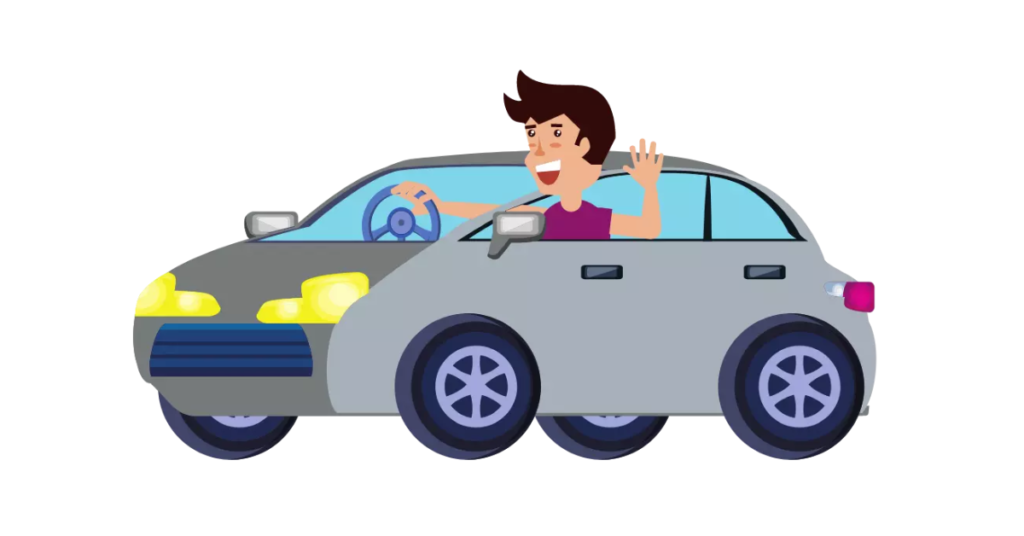When you are involved in a car accident, the consequences can be both financially and emotionally overwhelming. One of the key aspects to consider in such situations is how car insurance interacts with personal injury. Understanding the complexities of car insurance policies, including how personal injury claims are handled, can help you navigate these challenging circumstances and ensure you are properly covered.
This guide will explore the different types of car insurance coverage related to personal injury, the process of filing personal injury claims, and key considerations to ensure you are adequately protected.

What is Personal Injury Protection (PIP) in Car Insurance?
Personal Injury Protection (PIP), also known as no-fault insurance, is a specific type of coverage designed to cover medical expenses and sometimes lost wages and other related costs if you are injured in a car accident, regardless of who is at fault. It is typically offered as part of a car insurance policy and is mandatory in some states, while optional in others.
The benefits of PIP include covering medical treatment, rehabilitation costs, funeral expenses, and in some cases, income replacement if you are unable to work due to your injuries. Unlike traditional health insurance, PIP offers the advantage of covering immediate medical costs without the need for a deductible or waiting for fault determination.
Key Features of PIP Coverage
- Medical Expenses: PIP will pay for necessary medical treatment after an accident, including hospital visits, doctor’s appointments, surgeries, and even chiropractic care.
- Income Replacement: If your injuries prevent you from working, PIP can replace a portion of your lost income, which can be critical for maintaining financial stability.
- Funeral Expenses: In the unfortunate event of a fatal accident, PIP may cover funeral expenses.
- Childcare Expenses: If your injuries prevent you from taking care of your children, some policies may offer coverage for childcare services.
- Lost Wages: In addition to replacing a portion of your income, some PIP policies also cover lost wages for time missed from work due to the accident.
How Does Personal Injury Protection (PIP) Differ from Bodily Injury Liability?
It’s important to differentiate between Personal Injury Protection (PIP) and Bodily Injury Liability (BIL), as they are often confused but serve distinct purposes in car insurance.
- Personal Injury Protection (PIP): This coverage primarily pays for your own medical expenses and lost wages, regardless of who caused the accident. It’s designed to provide immediate relief to you and your passengers following an accident.
- Bodily Injury Liability (BIL): In contrast, Bodily Injury Liability is a form of liability coverage that pays for the medical expenses and other damages of others if you are at fault in an accident. This coverage is not for your own injuries, but for the injuries suffered by the other party in the crash.
While both types of coverage relate to personal injury, the key difference is that PIP is focused on covering your injuries, while BIL compensates others when you are responsible for the accident.
Why is Personal Injury Coverage Important?
- Protection Against High Medical Costs: Even if you have health insurance, medical bills following an accident can quickly add up. PIP ensures that these costs are covered without having to meet the high deductibles or co-pays often associated with health insurance.
- Financial Peace of Mind: In cases where serious injuries occur, PIP can provide crucial income replacement, so you don’t lose your financial stability during recovery.
- No-Fault System: In no-fault states, where PIP is mandatory, it helps streamline the claims process. You don’t have to wait for fault to be determined before receiving medical treatment and reimbursement for lost wages.
- Time Savings: PIP coverage eliminates the need to wait for the at-fault driver’s insurance company to process the claim. This can be crucial when you are in urgent need of medical care and income replacement.
What Happens in a Personal Injury Claim?
When you file a personal injury claim after a car accident, the goal is to recover compensation for the damages you’ve sustained, which may include medical bills, lost wages, pain and suffering, and other related costs. The process varies depending on the state you live in, the specifics of your policy, and the nature of the accident.
Step 1: Report the Accident
The first step is to report the accident to your insurance company. If you live in a no-fault state, you will typically file a claim under your PIP coverage. In at-fault states, you may file a claim against the at-fault driver’s insurance, or you may use your own coverage if you have uninsured motorist or underinsured motorist protection.
Step 2: Medical Treatment and Documentation
It is important to seek medical treatment immediately after an accident, even if you feel fine initially. Injuries from car accidents can sometimes take time to appear. Documenting all medical visits and treatments is essential for your claim.
Step 3: Negotiating the Settlement
After your medical treatment is documented, your insurance company will typically negotiate a settlement. If your insurer does not provide adequate compensation, or if the other driver is at fault, you may need to negotiate with their insurance company, or even pursue a personal injury lawsuit if necessary.
Step 4: Receiving Compensation
Once the claim is processed and the settlement is agreed upon, you will receive compensation. This may include reimbursement for medical expenses, lost wages, pain and suffering, and other costs related to the accident.
Key Terms to Understand in Personal Injury Claims
- No-Fault Insurance: A system where each driver’s own insurance covers their medical expenses and damages, regardless of who was at fault for the accident.
- Liability Insurance: A form of insurance that covers the damage you cause to others in an accident, including bodily injury and property damage.
- Underinsured/Uninsured Motorist Coverage: This coverage helps you when you’re involved in an accident with someone who does not have sufficient insurance coverage.
- Pain and Suffering: Non-economic damages that compensate for physical pain, emotional distress, and other hardships that result from an accident.
- Subrogation: A process by which your insurer seeks reimbursement from the at-fault driver’s insurance after paying for your claim.
How to Choose the Right Personal Injury Coverage
Choosing the right personal injury coverage can be a crucial decision, especially given the potentially significant medical costs that can arise after a car accident. When considering PIP or similar coverage, here are a few factors to keep in mind:
- State Requirements: The minimum coverage for PIP varies depending on where you live. Make sure to check your state’s laws to understand the requirements.
- Your Health Insurance: If you already have robust health insurance, you might decide to opt for a lower amount of PIP coverage. However, keep in mind that health insurance may not cover all of your accident-related expenses, particularly if you need extensive care.
- The Cost of PIP: While PIP can be an important safeguard, it’s essential to balance its cost with your budget. Some states offer different coverage levels, allowing you to adjust based on your needs.
- Potential for Lost Wages: If you have a job that requires physical activity or long hours, it’s advisable to opt for a PIP policy with income replacement, as this can offer peace of mind in case you need time off to recover.
Conclusion
Car insurance and personal injury protection are essential components of any responsible driving strategy. Personal Injury Protection (PIP) is particularly valuable as it ensures that your medical expenses, lost wages, and other costs are covered regardless of fault. Understanding the differences between PIP and other types of coverage, such as Bodily Injury Liability (BIL), as well as knowing how to file a claim, can help you make informed decisions and reduce the financial burden in the event of an accident.
Ultimately, the right coverage will depend on your unique needs, state laws, and personal circumstances. Taking the time to understand these aspects and choose a suitable policy can provide invaluable protection for you and your loved ones in the unfortunate event of a car accident.




